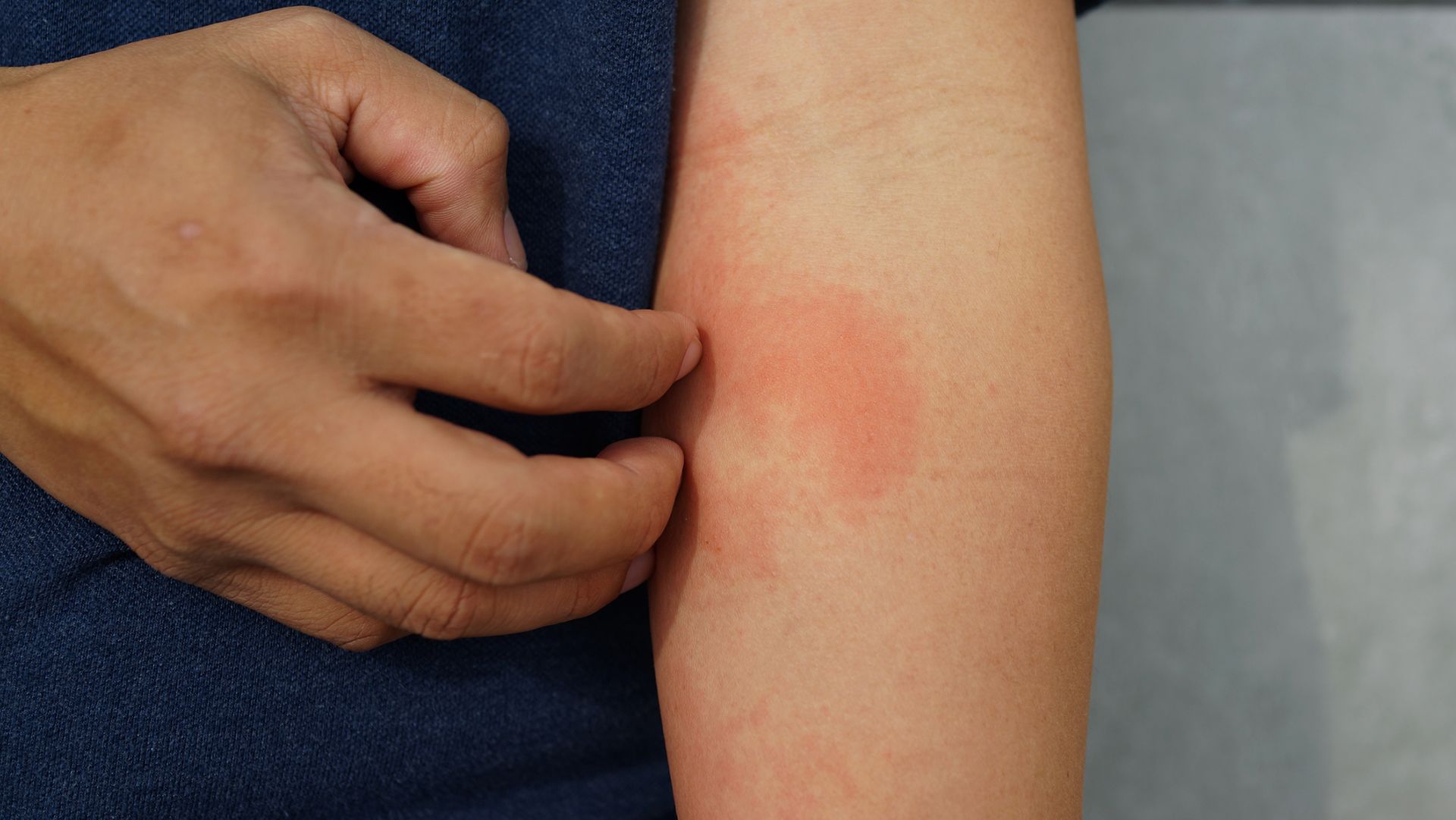Updated on September 1, 2021
Dry skin occurs when there is a lack of water in the outermost layer of the skin, the epidermis. When skin is dry, it feels irritated, itchy, and can look flaky or scaly. Dry skin can have a number of causes, including chronic conditions like eczema.
What causes dry skin?
The skin contains microscopic glands that secrete oil onto the surface of the skin. This oil keeps the skin lubricated and helps the skin retain moisture. When there is not enough oil on the skin, the skin loses moisture too quickly and becomes dry.
Dry skin can occur as a result of frequent washing, especially with harsh soaps. It can be caused by the weather, particularly dry air that is either very hot or very cold. As we age, our oil-producing glands tend to function less efficiently, which is why dry skin is more common in the elderly. In rare cases, dry skin can be caused by certain medications, including those for high blood pressure, high cholesterol, and acne. Dry skin can also be caused by a number of health conditions, including several forms of eczema.
What is eczema?
Eczema is not a single condition, but a collection of conditions that cause irritated skin. The most common form of eczema is atopic dermatitis, which affects roughly 27 million adults and children in the United States.
With atopic dermatitis, the skin does not function normally and loses moisture very quickly. As a result, the skin becomes red, scaly, and itchy. Skin can also become flaky and prone to breaking. Symptoms can be triggered by a number of factors, including temperature, irritants in household products, cosmetics and clothing made from certain fabrics, like wool. Symptoms tend to flare up at times and improve at other times.
There is no cure for atopic dermatitis, but the condition can be managed with medications, moisturizing, and avoiding substances and behaviors that aggravate symptoms.
Other types of eczema include:
- Contact dermatitis, which is caused by contact with an irritant
- Dyshidrotic eczema, which causes itchy blisters on the hands and feet
- Nummular eczema, which causes round sores or scales on the skin
- Seborrheic dermatitis, which causes red, scaly patches and dandruff on the scalp or areas of the body where there are more oil-producing glands, like the face
- Stasis dermatitis, or venous eczema, which occurs when poor circulation causes fluid to leak from the veins and into the skin
What else causes dry skin?
Dry or inflamed skin has many causes, ranging from inflammatory autoimmune diseases like psoriasis to fungal infections such as ringworm. It can also be caused by an allergic reaction or a reaction to cold weather.
If you are experiencing dry skin, any of the symptoms noted above, or any other skin symptoms, the best thing you can do is make an appointment with a dermatologist who can diagnose the cause and begin treatment.






